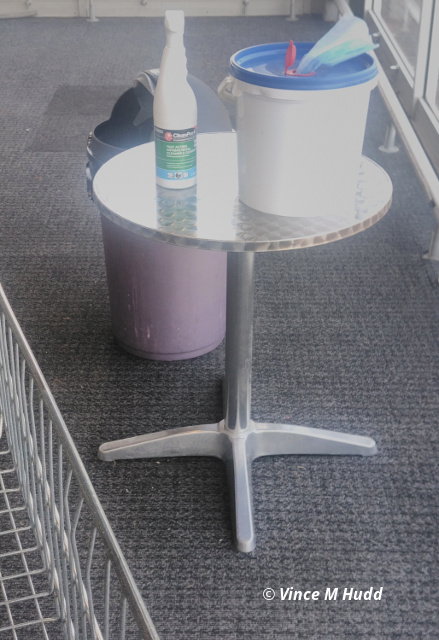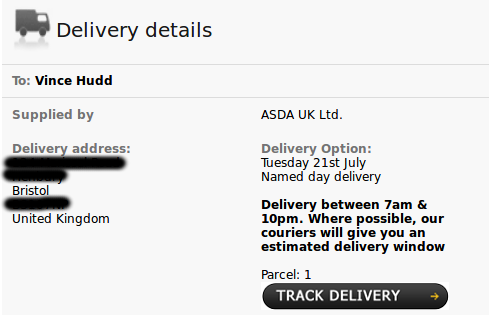The disinfection deception
In The Fomite Trap, I offered a simple explanation of what a fomite is – but to recap, a fomite is something on which traces of a virus can be deposited by someone who is infected, later to be picked up by someone else who is uninfected. The fomite trap I was talking about was an A4 plastic sleeve that people had to put their hands inside to retrieve other fomites, such as pens.
Fomites come in many shapes and forms, and some are worse than others in terms of how many other people touch them – and one example that a lot of people will touch are the handles of shopping baskets and trolleys.
Different shops are handling this in different ways – and here’s an example I encountered recently:

The shop in question had set up a small table containing a bottle of disinfectant and some wipes for people to wipe down their shopping trolly handles as they entered, along with a bin to throw away the wipes. Which is good.
Isn’t it?
Well, it’s an attempt at doing the right thing – but like the example in The Fomite Trap, it’s a flawed one.
The problem is that the trolleys are collected from outside the entrance; they are pulled from the trolley bay and pushed to the entrance, and through the first set of doors, prior to finding this disinfectant. Wiping down the handle is all well and good, but by this point if a previous customer was infected and had used that trolley, traces of the virus would already be on the hands of the next customer to use that trolley.
The simple solution here would be to provide customers with a means to clean their hands at the same time that they clean their trolley handles. I haven’t been to that particular store since I took that photo, which was a few weeks ago, but hopefully they’ve spotted this omission by now.


